Fleet Live, the UK’s leading event for the fleet management community, had record-breaking attendance figures year-on-year with more than 2,000 visits* across the two days at the NEC Birmingham (up from 1,830 last year).
The event, with headline sponsorship from Avon Tyres, gave decision-makers from fleets of all sizes the chance to speak to experts and peers about how to prepare for the future while improving efficiencies today.
Attendees had access to 120 exhibitors whose senior representatives were on hand to discuss their products, alongside expert talks from key industry figures.
The five distinct theatre sessions were packed as attendees were eager to hear from industry experts.
The Future Zone showcased the latest technological advances set to change the face of fleet.
* Pre-audited attendance figures
Strategy Theatre: opportunities presented by connected and autonomous vehicles
Vehicle connectivity, rather than autonomy, should be on the fleet decision-maker’s radar when it comes to next renewing their fleet, according to Dave Phatak, director of Ford Commercial Solutions Europe.
He told delegates at Fleet Live 2018 that fleets should not worry about how autonomy will impact vehicle choice.
“Autonomy is one of those subjects that is theoretically very interesting at the moment, but on a practical level it isn’t one of those technologies you need to consider,” he said.
He believes other technologies are much more relevant to fleet decision-makers right now, connectivity being chief among them.
Ford announced in September that it is bringing two new connected vehicle solutions to European fleet customers early next year.
Through its Ford Commercial Solutions (FCS) unit, it has developed Ford Telematics and Ford Data Services.
Ford Telematics will provide fleet operators with the ability to view data from connected Ford vehicles in their fleet.
However, recognising that some larger fleets may wish to work with their own in-house or third-party system providers, it has also developed Ford Data Services, which gives direct access to OEM-grade vehicle data.
However, Christoph Domke, director of KPMG’s Mobility 2030 division, says greater autonomy is coming over the next decade and penetration rates for the technology will be much higher among commercial vehicles.
He told delegates: “If you take the driver out of a truck, you save 30%, you have low insurance premiums and you save on fuel, so the business case is much higher for commercial vehicles than cars.”
But, he acknowledged that, in terms of bringing greater autonomy to market, manufacturers were wary of releasing the technology too early. “If an accident happens, as it has with Uber and Tesla, you will get a lot of negative publicity.”
Strategy session: moving people and goods
Transport for London (TfL) is examining whether it can change priorities at traffic lights at certain times of the day to help freight or service vehicles reach their destinations efficiently.
Lilli Matson, TfL director of transport, told Fleet Live that the idea is being looked at as part of the Mayor’s Transport Strategy.
The document has the combined goals of zero carbon transport and zero deaths and serious injuries on TfL’s roads.
It includes the implementation of ultra-low and zero emission zones, as well as trying to end car dominance in the city by persuading people to instead walk, cycle or use public transport.
Matson said: “Street space in London is very constrained. Large parts of the centre are extremely congested with slow speeds and lack of reliability for people on those roads.
“Our challenge is to ensure we are prioritising, not only our vehicles such as buses, but also the access of freight and services.
“We know that freight and services are essential to London. We know access to the capital is essential to its competitiveness and these policies, which are about creating safer and healthier streets, reliable public transport and reducing the car dominance need to be matched with policies for fleets which deliver clean, safe and efficient vehicles.”
As part of this, TfL is developing an action plan around freight. “Some of that is regulation and re-allocating road space, but ultimately it’s about more intelligent charging systems operating at different times of the day in different locations,” added Matson.
“Some of the things we are thinking about is how we can use our traffic light system and our network sensing to give priority to freight or service vehicles.
"They are ideas in development, but if you have a strategic and intelligent road network, it gives us more tools to play with in terms of managing traffic.”
Discover fleet: duty of care to the mental well-being of company drivers
Failing to address the mental well-being of drivers can have both a human and financial cost to an organisation.
Paul Jackson, head of impairment research at TRL (Transport Research Laboratory) said research has shown that 20% of the working population finds their work ‘very or extremely’ stressful, but “in the transportation industry the figure is probably a lot higher”.
Fatigue can also be a common problem due to factors such as shift work and long days behind the wheel.
If these stress and fatigue issues are not tackled, then they can result in mental well-being issues, said Jackson.
“This causes a significant cost to operations,” he added. “Fortunately, accidents are still a rarity, but there are plenty of problems below the surface.
“For those organisations that have customer-facing roles for their drivers, we know fatigued individuals are much less likely to deliver good customer service, they are less likely to care.
“We also know that fatigued and stressed individuals burn more fuel through harsh braking and harsh acceleration.
“Then you have all those bent metal costs where a driver has scraped a vehicle at the delivery warehouse or has taken a wing mirror off. All of these add up to insurance claims and the cost of those insurance claims is typically higher. These can then lead to a vehicle being out of service.”
Jackson said while the human costs will not be obvious on a company’s balance sheet, these include poor morale, increased anxiety and depression.
“Eventually people take days off sick,” he added. “But if not through sickness, they will take days off just through absenteeism. And even those that are in the office or working may be guilty of presenteeism – they may be there, but they are not particularly functional.
“As we often say, the lights are on but nobody is home.”
Strategy session: business mobility and the changing role of fleets
The fleet manager’s role is set to change from ‘managing assets’ i.e. vehicles to ‘orchestrating’ different mobility options, according to Piia Karjalainen of MaaS Alliance.
She predicted Mobility as a Service (MaaS) – the integration of different mobility services (such as public transport, taxis, bike sharing, car sharing and car rental), journey planning, ticketing and travel information into one package or mobility app – will be available in European capitals by 2020.
“We are already seeing the emergence of different mobility services across Europe,” she said. “The next phase is to integrate them and we already have advanced technologies for that and we have experience that people are curious and waiting for this kind of service.
“What is now defining the pace of the progress is how quickly we can convince the local public transport operators to be part of this new era.”
She highlighted that, in the West Midlands, public transport operators have been supportive of MaaS, with the launch of MaaS Global’s Whim app in Birmingham earlier this year.
Whim allows customers to choose the best mobility option based on their preferences (fastest/cheapest/cleanest/easiest) or to pay for all of their mobility needs in one monthly subscription.
Currently, the biggest mobility trend for fleet managers, according to Karjalainen, is corporate car sharing, which could include allowing members of the public to rent vehicles during the evenings and weekends when they are not being used by staff for business journeys.
She suggested companies could also look at ‘in-fleet sharing’ (employees allowing a colleague to use their car during the working day in return for credits to their account) in the future.
Car sharing could help businesses to reduce their fleet size by up to 25% and reduce parking expenses, Karjalainen suggested.
The Future Fleet Zone
The Fleet Live Future Fleet Zone showcased the latest technological advances set to change the face of fleet and advised on how to adopt them.
Exhibitors covered mobility, connectivity, the role of autonomous vehicles (including ADAS) and low and zero emissions in three hubs: technology, mobility and zero emissions.
Zerolight offered demonstrations of its 3D and 2D virtual reality configuration software, Pagani, which creates configurations of any vehicle using detailed digital models.
Zerolight marketing director Jack Nove said one of the key issues facing fleets in the coming years will be the replacement of ICE (internal combustion engines) with more environmentally friendly options.
He said: “When fleet decision-makers look to replace their fleet, they will want to look at all the configuration options possible. We have designed a solution that works through one PC and a VR headset, rather than relying on a text book, which isn’t always the best way.”
Anglian Water showcased Image First VR’s linked and networked driver safety training, which provided its combined fleet of 10,000 drivers access to simultaneous VR training exercises, resulting in savings of approximately £1 million.
Steve Havvas, virtual reality programme manager at Anglian Water, said: “The headsets we use are networked, enabling up to 30 drivers to participate in virtual reality training at the same time.
"This software brings VR training to the masses as opposed to the one-in, one-out method often found with traditional driver training options.”
Mobility provider Liftshare was on stand to discuss car share solutions through its platform myPTP, which supports existing corporate car-sharing schemes.
Liftshare senior business development manager Nathan Wride said: “Employees sign up to the platform, which we will design with company branding, and input their route.
It will then connect them with people undertaking similar journeys using postcode data, and highlight lift-sharing and/or public transport opportunities.
“The software can also indicate CO2 offset data and expected financial savings, compared to travelling in a single-occupancy vehicle.”
TRL brought its portable on-road trial simulator to the stand, which investigates factors too dangerous to trial on the road such as fatigue and drink driving.
It can evaluate new types of road infrastructure, combined with physiological methods such as eye tracking, heart-rate monitoring and facial expression mapping software, to establish reactions to new road layouts.
Additionally, TRL’s programmes address what it believes is one of the main challenges faced by fleet operators: how to operate profitably while maintaining a working environment that isn’t detrimental to driver mental health and wellbeing.
It is able to collect and analyse various data streams that indicate the business cost associated with poor driver wellbeing, while highlighting the benefits of effective wellbeing management.
Quote – unquote: views from the event
Operational session: how to transform the safety of your fleet
- “The talk has enabled me to go back to my leadership team and say the policies we are putting in place seem to be aligning with other information we receive. I have definitely been able to take something away from it.”
Chris Heslop, fleet services support officer, Social Security Scotland
- “It’s really interesting to understand the correlation between driver safety and cost saving. It’s important we get that right, not just from a money perspective, but also from a moral one.
"We have a responsibility as fleet managers and fleet owners to ensure our drivers are doing the right thing and are well looked after.”
Zoe Armstrong, fleet development manager, Volkswagen Group UK
- “For me, it was more about the learning curve, as we are a supplier to the industry and hoping to bring something to market.
"The way the session was put together, the thought process behind it and learning how Iron Mountain did things was an interesting key point.
"The speakers were brilliant. We are strongly considering exhibiting at Fleet Live 2019.”
Carly Greaves, commercial sales and analyst manager, Driver Hire
Strategy seminar: how fleets are pursuing zero-emission strategies
- “Fleet Live was a really useful and informative event, with great networking opportunities. I found this strategy seminar interesting as it gave me an understanding of how Royal Mail and Anglian Water electrified their fleet and what steps they took during the trial process.
Jacob Telemacque, fleet manager, Kings Secure Technologies
- “I think it was useful having people who have gone through that process and having real life examples of the issues they faced, and the benefits of how they’ve done things. Especially as we are looking to implement similar strategies.”
David Pearson, finance business partner, Zoological Society of London
Discover fleet theatre, procurement: purchasing best practice
- “Given we are reviewing our fleet requirements before going out to tender, attending this session was a must. It was not only informative, but I have also made a good connection through speaker Jo that will be invaluable going forward.”
Kerry-Lee O’Sullivan, category manager, Solihull Metropolitan Borough Council
Twitterati: views from social media

“The team working on the Nexus Vehicle Rental stand at Fleet Live have been rushed off their feet over the past few days with all the conversations from interested delegates on our stand. We ended the day with big smiles.”
Nick Hullin, business development manager Nexus Vehicle Rental

“I was delighted to attend the Fleet Live 2018 show at Birmingham NEC. I have to say it was a well thought out event with some interesting speakers – on a personal level I thought the Mobility as a Service and ‘Route to Zero’ Strategy discussions were well worth the attendance on their own.
"Great to see a few familiar faces.”
Jamie Arkell, area manager, Ogilvie Fleet

“Had the chance to speak to experts and peers from fleets of all sizes at Fleet Live. It was great to hear how they are preparing for the future of fleet.”
Debbie Button, business development manager, Warranty Direct

“With our feet still throbbing, it’s back to the real world today after a fantastic two days at Fleet Live. The LeasePlan team and I had a great two days catching up with customers, talking to prospects and eating cake! Now the real work begins with our follow ups.
"Thanks for all your time and we will be in touch soon!”
Tim Ward, account manager new business, LeasePlan UK

“Loads of interest in company car tax trends and how they’re influencing the development of alternative forms of funding. Would like to thank all those involved in the presentation especially Alphabet for making it all possible.
"Having noted the dates for next year’s Fleet Live I wonder how the market might have changed; will I be proved right about PCH affinity and ECO?”
Jeff Whitcombe, director, BCF Wessex

“Very interesting talk from Dr Paul Jackson at Fleet Live on driver mental health. Some very relevant topics and talking us through how so many mental health conditions are exacerbated by businesses and operational demands, yet so few workplaces have sufficient support in place to offer employees when they are struggling, at an eventual cost to the business. Insightful.
Sheri Williams, HR advisor, National Veterinary Services
“The IFS sales team have been busy interacting with customers and industry peers at Fleet Live. Already looking forward to next year’s event!”
Inchcape Fleet Solutions

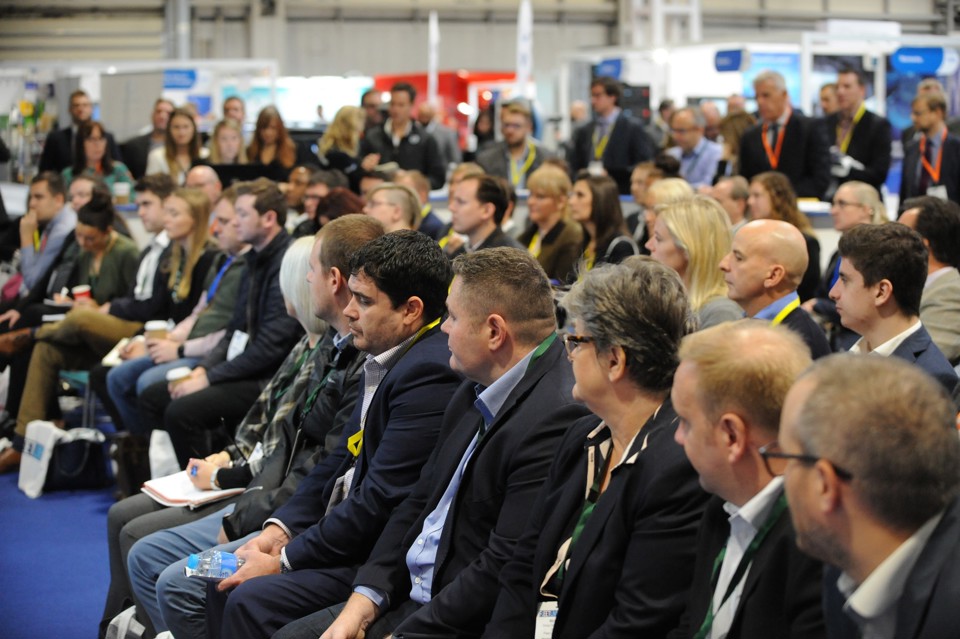

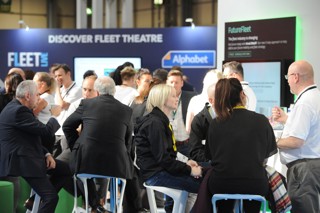
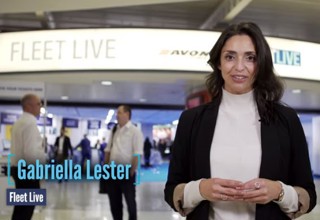

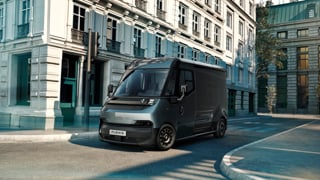
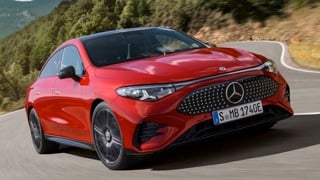












Login to comment
Comments
No comments have been made yet.